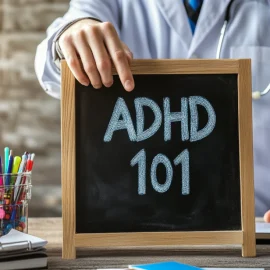

This article is an excerpt from the Shortform book guide to "Codependent No More" by Melody Beattie. Shortform has the world's best summaries and analyses of books you should be reading.
Like this article? Sign up for a free trial here .
How can you tell if a person has codependent tendencies? What side-effects can codependency lead to?
In her book Codependent No More, Melody Beattie outlines the most common codependency traits. It’s important to look out for these symptoms in yourself or in others because, the longer these traits go unaddressed, the worse the problem becomes.
Here are the characteristics of codependency.
Characteristics of Codependency
Like many psychological issues, codependency has varied and sometimes contradictory symptoms. For the full list of symptoms, please see the book. We’ve synthesized Beattie’s 14 major codependency traits into three critical categories.
(Shortform note: These categories are fluid. Several of the symptoms listed below can fit into more than one category. We’ve limited each symptom to a single category to maintain clarity.)
1. Putting Responsibility in the Wrong Place
Beattie believes that codependents put responsibility in the wrong place. They see themselves as responsible for everyone else’s behaviors but don’t take responsibility for their own. This manifests in the following ways:
- Obsessing over other people’s behavior and attempting to control that behavior
- Taking care of everyone else and putting even minor problems above their own needs
- Believing they know best and getting angry when other people don’t listen to them
| Taking Responsibility for Others and Not Yourself: Why Does It Happen? Some people argue that taking too much responsibility for others comes from thinking yourself too independent: so independent that you alone have the power to help yourself and others. In reality, everyone is interconnected; no one exists in a vacuum, being the cause and controller of everything around them. While at first this mindset seems contrary to Beattie’s—one arguing that you’re too independent and the other maintaining that you’re too dependent—they’re really different ways of saying the same thing. In the first mindset, you think you’re independent, but you’re not. By thinking you’re independent and trying to control everything, you’re really becoming dependent on and being controlled by other people and your situation, as Beattie asserts. To overcome this mindset, look at the outside influences on your behavior, even who built your house or stocked the grocery store. This reminder that you’re not operating alone lets you release over-responsibility. But what about the inability to take responsibility for yourself? Often, this is due to low self-esteem: Codependents base their self-worth on their actions. Admitting to a mistake would deal heavy damage to their esteem. It feels safer to control other people’s actions because if the other person makes a mistake, the codependent isn’t as affected. Meanwhile, the codependent can’t worry about their own actions while focusing on the other person. We’ll talk more about self-esteem and its effects on codependents in Chapters 3 and 4. |
2. Neglecting Themselves in Favor of Others
Because they focus on other people’s behavior, codependents struggle to take care of themselves or let others help them, Beattie explains. This can manifest in the following ways:
- Having low self-esteem and relying on others to validate their worth through reassurances and compliments
- Having weak boundaries and gradually acclimating to things they swore not to tolerate
- Not being able to trust others or let others help them
- Suppressing their own desires or lack of desires when it comes to sex
| The Fear of Being a Burden Leads to Self-Neglect What causes a codependent’s self-neglect? Arguably, it’s the fact that codependents fear being a burden. They worry that if they don’t make themselves useful or pleasing, their loved ones will abandon them. To please others, they discard their own needs and boundaries, both in their sexual and everyday life. They cannot ask for help, because doing so would be burdening the other person. This fear usually stems from childhood: At some point, they learned that asking for help meant they were a burden. Ironically, in their quest to be self-reliant, codependents end up needing other people for validation. Unfortunately, this reliance only worsens self-esteem and self-neglect. External validation boosts your mood, but it also reinforces the idea that you need to focus on other people and not burden them to receive that validation. The fear of being a burden is a difficult mindset to escape. Pay attention to your inner critic and recognize when it accuses you of being a burden. Use those situations to practice being open about your needs and boundaries, rather than listening to that inner voice. |
3. Being Unable to See Themselves Clearly
Beattie maintains that codependents can’t receive help or take responsibility because they lack self-knowledge. They’ve repressed their feelings, needs, and personality for so long that they’ve lost touch with them entirely. This can manifest in the following ways:
- Repressing their feelings and losing sight of their personality, wants, and needs
- Being unable to understand or communicate what they really mean
- Refusing to admit that anything is wrong
| Suppression vs. Repression: The Benefits and Dangers While Beattie refers to repression throughout her book, a more accurate word is suppression. Suppression is the purposeful pushing away of thoughts or feelings, while repression is a subconscious act. Suppression can be useful in the short term, allowing you to function until you are safe to experience your emotions. However, if you suppress your feelings or needs long enough, it turns into repression. This causes you to lose touch with these feelings and needs entirely, as Beattie asserts, and causes severe problems as listed above. There are a few steps you can take to avoid repression: 1. Name your emotions with “I” statements such as “I feel disappointed.” 2. Journal to understand your thoughts and feelings better. 3. Make a habit of sharing your thoughts and feelings with others, even if it means admitting that things are wrong or communicating harsh truths. |
The Effects of These Symptoms
Beattie stresses that the above symptoms are warning signs and that codependency gets worse the longer it lasts. When it goes unaddressed, codependents become depressed. They may isolate themselves, lose interest in hobbies and activities, be unable to complete daily tasks, and consider suicide. This can lead to codependents becoming addicts themselves.
| The Connection Between Depression, Addiction, and Codependency As Beattie implies here, depression and addiction frequently go hand-in-hand. Someone with depression might turn to alcohol or drugs to cope, and an addict might develop depression. Because codependency has very similar symptoms to addiction, codependents are at high risk for both conditions. If you notice depressive symptoms in yourself, such as loss of interest in life, prolonged sadness, or thoughts of suicide, reach out to a medical professional. You can also fight depression by increasing positive interactions with other people, taking care of your physical health, and focusing on positive experiences. |

———End of Preview———
Like what you just read? Read the rest of the world's best book summary and analysis of Melody Beattie's "Codependent No More" at Shortform .
Here's what you'll find in our full Codependent No More summary :
- What inspired codependency 12 Step Programs around the country
- Explanations, advice, and compassion for people struggling with codependency
- How to practice detachment, self-care, and personal responsibility






